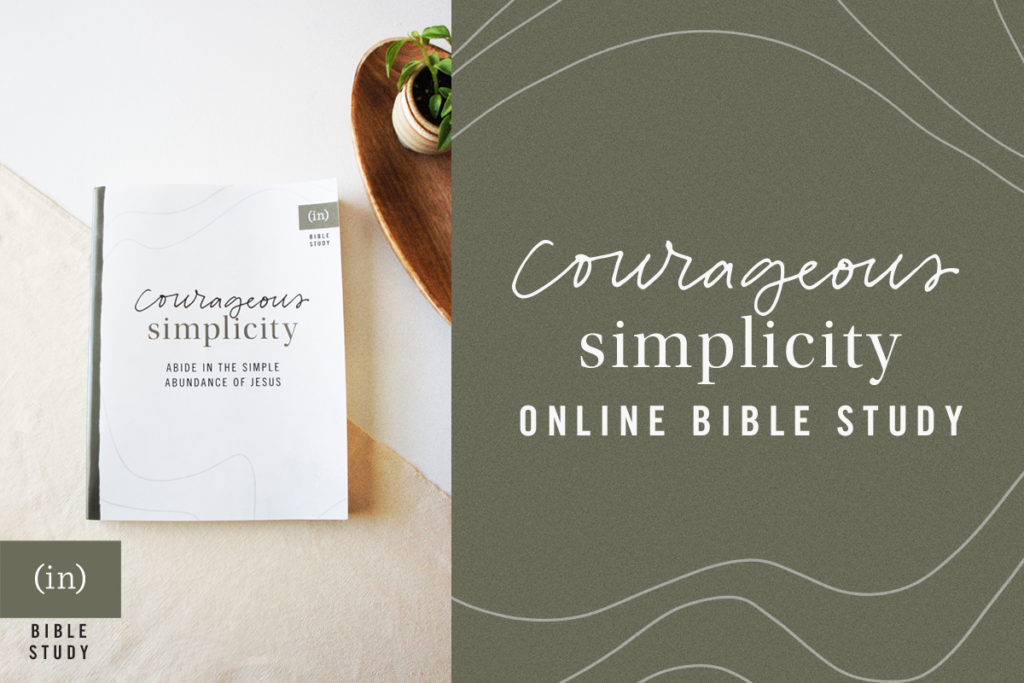Snow is falling outside my window. The children across the street are playing in it, running around with wagons, toy shovels and baseball bats (?) — doing what kids do best. They’re having fun. I soak in their sounds of joy because, as you well know, we’ve had one long, hard year.
Feeling overwhelmed, I almost ask myself a wrong question: How did we get here? Instead, I finally do something unusual. Or, as the Bible recommends, I take a break just to “be still.” I turn off cable, stop scrolling, clear off my desk, sit myself down. Then I do nothing. No reaching for my Bible. No calling a friend to process feelings. No writing a blog post to hear myself think.
Instead, in the stillness, I begin to think of something I hadn’t thought about in weeks — an online cardio class (of all things). My husband suggested it a few weeks ago. It’s on Zoom and in real time.
I’m lukewarm about it, to tell the truth. But I find the link and register. In an hour, when the class starts, I open Zoom, and I hear something I haven’t heard in almost a year.
“Hi Patricia!”
This greeting — without meaning anything more than hello — is the kindest thing I’ve heard in too long a time. It’s just a hi.
The teacher, a forty-something physical trainer, is taking the class through its warmups. “Step right. Step right. Two times. Two times.”
To do all the steps and arm movements, I have to do something I’d often forgotten to do this past year: stop thinking about anything else. There’s no multi-tasking in this class, not for me anyway.
Instead, for forty-five minutes, I have to just move, follow the instructions, not second-guess the teacher.
Later, of course, I think of the beauty of always doing that — just following the Teacher, obeying His instructions, repeating His moves, and not second-guessing Him.
“Follow me” is how Jesus put it (Luke 5:27). He was speaking to Levi, the tax collector, whose tax vocation was despised and seen as sinful. Walking up to his tax booth, however, Jesus spoke the words. Then without questioning, Levi (also known as Matthew) “got up, left everything and followed him” (Luke 5:28).
What a beautiful, remarkable response. At the word “follow,” Levi understood its Hebrew meaning — halakh, meaning “walk” — was like Jesus saying, “Walk with Me.”
That’s our invitation from the Lord today: Walk with Me. Not behind Me, running after Me, always trying to keep up — never close enough to truly know Me. Likewise, don’t walk before Me — getting ahead of where I’m going, taking charge of what you don’t control or fully understand.
In the disruptive days of an overheated political era, there’s no better instruction than to walk with the Lord. Strolling along. No hurry. Ignoring pressure.
When we walk with Him, we don’t get lost or off track. No matter where He goes, trudges, or climbs, God invites us to stick close by, setting our pace to His, keeping our eyes on Him, reflecting His stride and not our own. Walking alongside Him, we take on His character and ways, words and means — no matter what else is erupting or occurring.
What we find is a Holy Guide who doesn’t let any strife, pressure, or upheaval boiling around Him affect Him. Thus, earlier in the fifth chapter of Luke’s gospel, after Jesus heals a man with leprosy, even touching the man, “crowds of people” pressed in to hear Him and be healed of their sicknesses by Him. (Luke 5:15). They plead with Him, demanding attention. Our worries, fears, and conflicts do the same.
But how did Jesus walk through such minefields? He “often withdrew to lonely places and prayed” (Luke 5:16).
Strolling along with Him, we can do the same. (We may even learn to play sometimes like little children.) The world may seem to be unraveling — our nation and neighborhoods, homes and hearts sometimes in tatters. But when we obey the Teacher, moving like Him along the road of life, He simply offers this reminder: Walk with Me. Not too fast. A holy stroll.
Then, when we do, we never walk alone.



